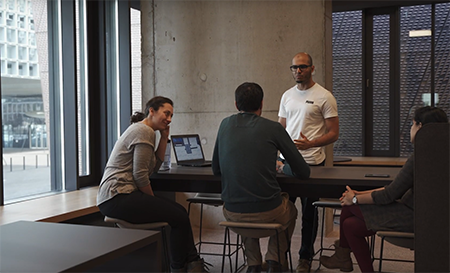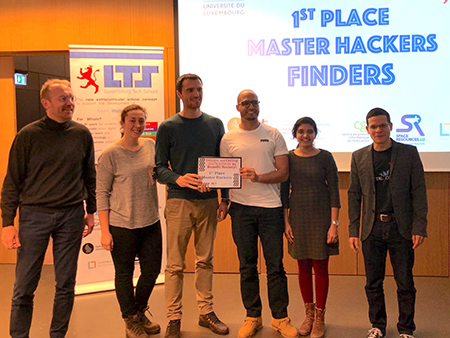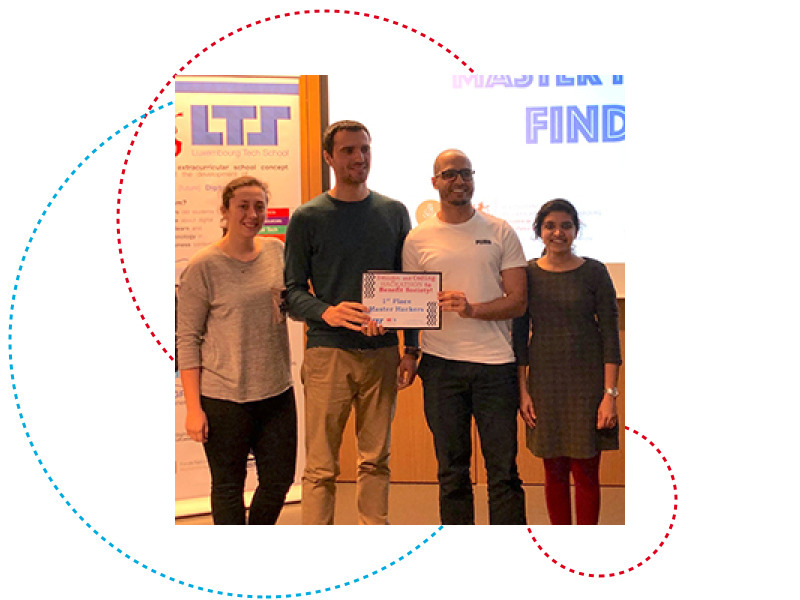Have you ever considered grabbing a shovel, a bag of sand and going out to fill in potholes in the street? If you live in Luxembourg, where efforts to keep roads well maintained could be described as zealous, then probably not. But this was the reality faced by SnT researcher Abderrahmane Mayouche in his native Algeria.
“We have roads that are so broken that normal citizens will take time at the weekend to make them safer,” says Mayouche, who is studying for a PhD in 5G cellular communications at SnT. “When I was there, I thought a lot about how an app could allow citizens to do this more efficiently, reporting pothole locations to a shared map. Then if someone else fills one in s/he could mark it as resolved.”
Mayouche’s work in cellular communications meant that he never got the chance to pursue the idea. Until now.
In the opening days of February, Mayouche joined forces with three students from the Master in Information and Computer Sciences to take part in the University of Luxembourg’s first Design and Coding Hackathon, organized with Luxembourg Tech School. The team’s challenge? To develop a tech solution for citizens to report damage to civil infrastructures.
Plarent Haxhidauti, Ema Kepuska and Elizabeth Olickal had already spent 12 weeks developing the “Civilians” app, allowing users to submit photos of infrastructure damage to be stored on a central database. The hackathon gave the four of them just two days to develop a corresponding Android app allowing authorities to make use of the data provided by the Civilians app.

“Their original idea was already really good and I was very happy to join their team,” says Mayouche. “We just needed to work out the best ways to sort and display the submitted data, how to label individual cases as resolved, and how to handle authentication, so that people couldn’t mess up the data. I’d thought a lot about these practicalities back in Algeria, so this was a good chance to put theory into practice.”
The clarity and applicability of the team’s solution impressed the judges, and they went on to win first prize.

L-R: Prof. Romain Martin, , Plarent Haxhidauti, Abderrahmane Mayouche, Elizabeth Olickal and Dr. Sergio Coronado
Back at his “day job” at SnT Mayouche develops methods of using interference to ensure that only the intended recipient of a wireless message can read it. Any interceptor would have such bad signal that even if he succeeded, he wouldn’t be able to decrypt it. “The task couldn’t really have been much further from my research,” concludes Mayouche, keen to encourage anyone in ICT to take part in hackathons. “But I’m curious by nature, and these events are a great opportunity to interact with interesting people and learn from them.”
